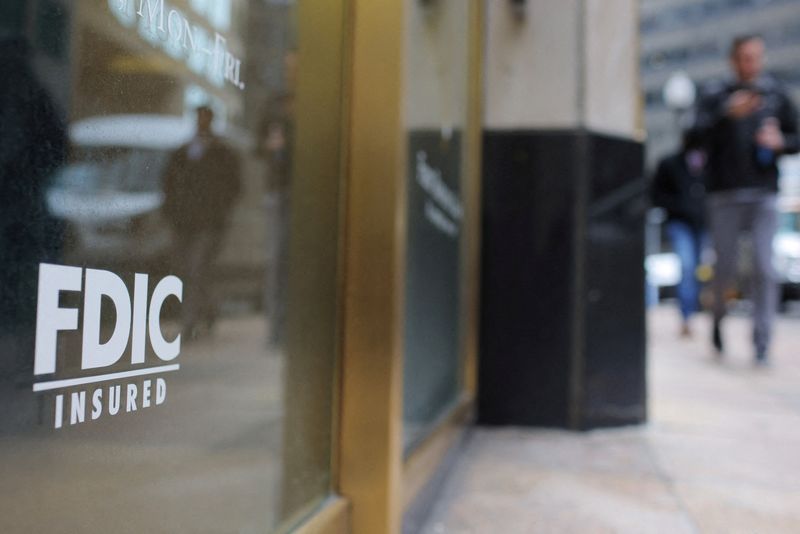(Reuters) – The U.S. government fund that backstops nearly $10 trillion in insured bank deposits is recovering ahead of schedule from declines and losses in recent years, while the banking system remains largely resilient, U.S. Federal Deposit Insurance Corporation officials said on Thursday.
Last year’s spring banking crisis, which involved the second-, third- and fourth-largest bank failures in U.S. history, added tens of billions in losses to the FDIC’s Deposit Insurance Fund.
WHY IT’S IMPORTANT
The FDIC, a key guarantor of financial stability in the world’s largest economy, says restoration of the insurance fund, which comprises banks’ insurance payments, is going according to plan it does not foresee major turbulence on the horizon despite some problem areas for the banking industry.
KEY QUOTE
“While the number of problem institutions increased in the first half of 2024, the share of problem banks to total banks remained in the normal range for non-crisis periods,” Dan Hoople of the FDIC’s Division of Insurance Research said in a periodic update to the agency’s board of directors.
“Despite this resilience, segments of the industry face elevated and rising non-current ratios, particularly in commercial real estate and consumer portfolios.”
BY THE NUMBERS
As of June 30, the DIF balance stood at $129.2 billion, up $7.5 billion from the end of last year, representing 1.21% of all insured deposits and putting it on track to return to the legally required level of 1.35% by 2026, two years ahead of schedule.
In its most recent quarterly report, the FDIC said it had identified 66 “problem banks,” or lenders that exhibit particular financial, managerial or operational weakness, an increase of 14 banks since the end of 2023.
CONTEXT
Profits at large banks took a temporary hit as they made extra payments to cover insurance fund losses from last year’s spring crisis, which current estimates say cost about $19 billion.
Since 2020, when insured bank deposits increased under stimulus spending during the coronavirus pandemic, requiring more FDIC coverage, the agency has been pursuing a “restoration” plan to return the reserve ratio to 1.35%.




























